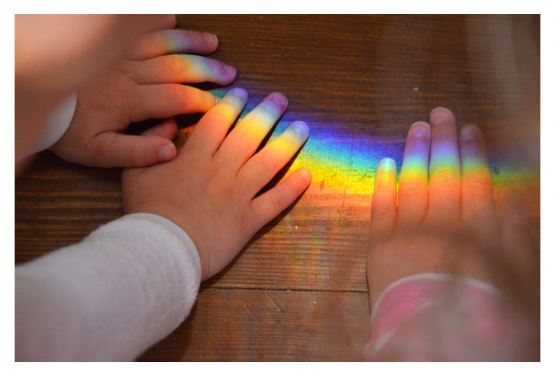Wresting Peace from War
President's Message
I had planned to write the next 3 messages in 2022 about the future of child and adolescent psychiatry as my time as President winds down. In political systems, it is what is termed a lame presidency in which the president no longer holds a mandate for change. But events have unfolded rather suddenly to make me think more about this. Even as the threat of the COVID 19 pandemic appears to be decreasing with the omicron wave subsiding, a new war has emerged in Europe. A real human war risen out of the socio-political developments in the region. Whatever the reasons for the conflict, human suffering will ensue. And the impact on infants, children and adolescents can be lifelong.

This is evidenced in the science of trauma, and we and others in our field have issued numerous statements over the years that speak to this (Declaration of Rome 2003, War hits Children First ESCAP 2022). We as professionals working in this space for the young know that apart from the treatment of disease, prevention is better than cure. There is no conflict that will spare the children as families and routines become displaced. And wars in this time and age will also have impact on the global scale because of the way our world is now interconnected, and our economies intertwined. This war in Ukraine can affect the livelihood of people around the world, and once again the young will suffer.
What can we do as professionals in a time such as this?
We should advance support from a practical perspective. I understand that the victims of the conflict are fleeing to the Western regions around Ukraine such as Poland, Romania, Slovakia, Hungary and Moldova. We can offer help to the families and children in real practical ways. Providing psychiatric and psychological support to these refugees. There has also been requests for medical supplies including psychiatric medications to medical centres within the area of conflict. We can also provide services through technological means such as telepsychiatry. Finally, we can also enhance international co-operation to these efforts through organisations such as IACAPAP, World Association of Infant Mental Health (WAIMH), International Society for Adolescent Psychiatry and Psychology (ISAPP) and (World Psychiatric Association Child and Adolescent Psychiatry Section) WPA-CAP.
Next, we should increase public awareness of the psychological impact of war on infants, children and adolescents and their families. It is our responsibility to go public and share the body of research that has shown how war and stress create trauma and effects that can be transgenerational.
Finally, we should advocate for rationality and cooperation to help communities and governments understand the importance of international relations and the sovereignty of nations so that peoples do not become misinformed through propaganda (which we now know as fake news).
The development of Infant, Child and Adolescent Mental Health Day
WAIMH, IACAPAP, WPA and ISAPP recently met to discuss the importance of mental health amongst our young and how this is fast becoming a global crisis. Children and adolescents form a third of the world's population. Research has demonstrated that adverse experiences in childhood impact lifelong mental and physical health. Most mental disorders develop in the young before the age of 25, and one-quarter of disability-adjusted life years for mental and substance use disorders occur in youths. The prevalence of mental disorders continues to rise in the young and is higher than adults. The need to improve understanding of this as well as to create awareness of its importance in families, communities and societies cannot be underestimated. We propose to initiate an Infant, Child and Adolescent Mental Health Day annually on April 23rd to bring global awareness and literacy to this issue and bring the relevant professional agencies committed to this cause together. The initial proposal is to bring together activities that will celebrate the promotion of mental health and focus on improving the treatment of mental illnesses across the world. Perhaps this will be a step towards a world in which all children grow up healthy, emotionally as well as physically, and realize their potential to contribute to their society.
References
- Pols H, Oak S. War & military mental health: the US psychiatric response in the 20th century. Am J Public Health. 2007 Dec;97(12):2132-42. doi: 10.2105/AJPH.2006.090910. Epub 2007 Oct 30. PMID: 17971561; PMCID: PMC2089086.
- Lavik, Nils Johan. “Contributions from Psychiatry on the Peace—War Issue.” Bulletin of Peace Proposals, vol. 20, no. 2, Sage Publications, Ltd., 1989, pp. 157–65.

